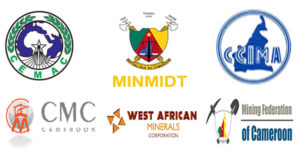Buy Gold Direct From Miners – Where Do Gold Miners Sell Their Gold?
How to Buy Gold Directly from Miners: A Comprehensive Guide
In recent years, the allure of buying gold directly from miners has captivated investors and enthusiasts alike. The idea of bypassing middlemen, ensuring the authenticity of your gold, and potentially securing better prices is appealing. If you’re considering diving into this unique market, here’s everything you need to know to make informed decisions and navigate this exciting opportunity.
Why Buy Gold Directly from Miners?
Transparency and Authenticity: Purchasing gold straight from the source allows you to verify its origin and quality more easily. This reduces the risk of counterfeit or adulterated products.
Cost Savings: By cutting out intermediaries, buyers can often obtain gold at a lower price. The reduction in markup from dealers or brokers can translate into significant savings.
Supporting Ethical Practices: Many miners, especially small-scale operations, are committed to fair trade and responsible mining practices. Buying directly supports these ethical initiatives.
How to Buy Gold Directly from Miners
1. Research and Identify Reputable Miners
Begin your journey by researching verified gold suppliers. Bonas Gold is one such trusted and licensed gold supplier in Cameroon, offering various products including:
2. Understand the Market
Familiarize yourself with the global gold market through resources like Kitco or the LBMA. Understand spot prices, purity grades, and trends.
3. Verify Authenticity and Quality
Ensure the miner provides certificates of authenticity and assay reports. Bonas Gold guarantees verified purity and industry-standard compliance on all its products.
4. Establish Direct Communication
Reach out directly via [email protected] or WhatsApp/Call: +237 675 915 154 to discuss pricing, terms, and logistics.
5. Understand the Legalities and Logistics
Buying gold involves compliance with import/export regulations and taxation in your country. Refer to Bonas Gold’s Gold Order Process Guide to understand legal protocols.
6. Secure Payment and Delivery
Agree on trusted, traceable payment methods. Ensure delivery is secured and insured. Bonas Gold provides CIF delivery terms with trusted logistics partners.
7. Consider Storage and Security
Plan for professional vault storage or secure private facilities. Insure your gold to mitigate risks.
Where Do Gold Miners Sell Their Gold?
Gold miners use a variety of channels, depending on their scale and market access:
1. Refineries
Major refineries like Valcambi, Metalor, Pamp Suisse, and Argor-Heraeus buy raw gold and turn it into standardized bullion.
2. Gold Exchanges
Gold is traded on global exchanges like:
- London Bullion Market Association (LBMA)
- New York Mercantile Exchange (NYMEX)
- Shanghai Gold Exchange (SGE)
3. Bullion Banks
These large banks such as J.P. Morgan, Goldman Sachs, and HSBC buy gold in bulk and sell it to investors or governments.
4. Direct Sales to Investors
Some miners sell directly to private investors through websites and investment platforms. Bonas Gold offers a direct-to-buyer experience online:
5. Jewelry Manufacturers
Jewelry companies buy directly from miners to secure consistent raw materials.
6. Government and Central Banks
Though less common, some governments buy gold directly from large-scale mining companies.
7. Local and Regional Markets
Small-scale miners may rely on regional gold traders or marketplaces in developing economies.
8. Gold Dealers and Brokers
These middlemen help miners reach international buyers while handling pricing, certification, and shipping.
Risks and Considerations
- Market Fluctuations: Be aware of volatile gold prices.
- Scams and Fraud: Always verify seller legitimacy. Work only with licensed dealers like Bonas Gold.
- Regulatory Compliance: Understand and follow your country’s gold importation laws. Resources:
Related Buying Guides & Country-Specific Resources
- Buy Gold Directly from Africa
- Cheapest Way to Buy Gold Online from Africa
- How to Import Gold from Africa to Dubai
- How to Buy Gold from Africa to Romania
- Buy Gold in Uganda
- Premium Raw Gold Opportunity
Final Thoughts
Buying gold directly from miners can be a rewarding and cost-effective investment strategy—if done properly. With trusted partners like Bonas Gold, buyers can access ethical, certified, and high-quality gold and gemstones from Cameroon and across Africa. Take the time to do due diligence, follow legal procedures, and work with reputable suppliers to enjoy a secure and profitable experience.
Contact Bonas Gold Today
🌐 Website: www.bonasgold.net
📧 Email: [email protected]
📱 WhatsApp / Call: +237 675 915 154
Explore More Products & Resources:
- All Products
- Buy 24K African Gold
- Buy Gold Bars in South Africa
- Buy Olivine Peridot Gemstones
- How to Buy Authentic African Gold
Stay safe. Trade smart. Buy directly.







